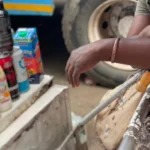In a troubling turn of events, reports of the arrest of Riek Machar, South Sudan’s Vice President and former rebel leader, have raised alarms in the international community. The United Nations has issued urgent warnings regarding the risk of escalating conflict in the already volatile nation, emphasizing the need for immediate diplomatic interventions to prevent further deterioration of the situation.
Despite a peace agreement signed in September 2018 that ended a brutal civil war, South Sudan remains fraught with political instability and ethnic tensions. The nation has been struggling with widespread violence, displacement, and famine since gaining independence from Sudan in 2011. Machar, a pivotal figure in South Sudan’s political landscape, was designated as First Vice President as part of a power-sharing arrangement intended to foster unity and peace. However, his potential arrest threatens to unravel these fragile gains.
Reports of Machar’s arrest emerged on October 23, 2023, igniting fears of renewed violence. Eyewitness accounts suggest that Machar’s allies have faced increasing persecution, exacerbating tensions within the governing coalition. The United Nations Secretary-General, António Guterres, has condemned the arrest, urging the South Sudanese leadership to uphold their commitments to the peace process and protect civilians.
The UN’s warnings come amid a backdrop of continued clashes between rival factions, ethnic rivalries, and the proliferation of armed groups. Despite existant peacekeeping missions and humanitarian efforts, the country has seen a significant uptick in violence since the start of 2023. According to the UN Office for the Coordination of Humanitarian Affairs (OCHA), an estimated 8.3 million people, over two-thirds of the population, require humanitarian assistance, marking one of the highest figures globally.
In recent months, thousands have been displaced due to increased fighting, particularly in regions such as Upper Nile and Jonglei. The United Nations Mission in South Sudan (UNMISS) reported incidents of attacks on civilians, including sexual violence and abductions, that further complicate the humanitarian landscape. In a scenario where Machar’s arrest leads to a crackdown on his supporters, the country risks descending into chaos, with the potential for widespread violence against civilians who are already suffering in a dire humanitarian crisis.
Human rights groups have voiced their concerns over the potential consequences of Machar’s arrest. The International Crisis Group has stated that the move could provoke retaliatory violence from his supporters, which would not only impede peace efforts but could also bring about a renewed cycle of revenge attacks and ethnic-driven conflicts. This fear is compounded by the reality that many communities remain armed and are embroiled in long-standing grievances that could easily escalate.
International stakeholders have a critical role in addressing the situation. Diplomatic engagement from the African Union, IGAD (Intergovernmental Authority on Development), and key nations, including the United States and the United Kingdom, is essential to de-escalate tensions. Immediate dialogue between the South Sudanese government and opposition factions must be prioritized to reaffirm commitments to peace and stability.
In conclusion, the recent reports of Vice President Riek Machar’s arrest have triggered serious concerns regarding escalating conflict in South Sudan. With millions of lives hanging in the balance, the international community must act swiftly to mediate the situation and protect civilians from the devastating impacts of renewed violence. If not addressed urgently, South Sudan risks slipping back into the abyss of conflict that it has fought so hard to overcome.
Email Us on editorial@nnafrica.com













